Cutting Edge A: Cytometry
Recorded On: 08/04/2020
- Registration Closed
The session features cutting edge cytometry where performance and speed are factors. With a research focus on the mechanisms by which cancer cells evade death hear how determining the critical status of mitochondria can be subjected to high-throughput approaches, enhancing opportunities for the selective killing of cancer cells. Recent advances arising from single cell genomics, have placed a new emphasis on tools for obtaining multiple modalities of information from high-throughput single cell assays. The rapidly developing field of photoacoustic imaging allied with ultrafast photography allows peering non-invasively into biological tissues – a breakthrough for multiscale high-resolution cytometry.
Agenda and Speakers
Session Moderators
Pia Kvistborg, PhD, Junior Group Leader, Dept. of Immunology, Netherlands Cancer Institute
Fabienne Lucas, MD, PhD, Clinical Pathology Resident, Brigham & Women's Hospital, Boston, MA
High-throughput flow-cytometry mitochondrial profiling to target cancer cell death
Anthony Letai, MD, PhD, Professor of Medicine, Dana-Farber Cancer Institute, Harvard Medical School; Associate Member, Broad Institute
Multimodal techniques for high content and high throughput cellular phenotyping
Peter Smibert, PhD, Senior Manager, New York Genome Center
World’s Deepest-Penetration and Fastest Optical Cameras: Photoacoustic Tomography and Compressed Ultrafast Photography
Lihong Wang, PhD, Bren Professor of Medical Engineering and Electrical Engineering, California Institute of Technology
Pia Kvistborg, PhD (Moderator)
Junior Group Leader, Dept. of Immunology, Netherlands Cancer Institute
Dr. Kvistborg's scientific training has been focused on tumor immunology, starting already during her Master internship at the Danish Cancer Society. For her post-doctoral training she joined the group of Ton Schumacher at the Netherlands Cancer Institute in Amsterdam. Three years ago, she transitioned into independence with financial support from The Netherlands Cancer Institute and the Dutch Cancer Society. Throughout her training, the focus has been on what T cells see on cancer cells. During her post-doctoral training, technological developments made it feasible to dissect the neoantigen-specific T cell response in cancer. This work has been a significant contribution to understanding what is driving the foreignness of some tumor types, and earned her the Presidential Award for Excellence from ISAC in 2014. Dr. Kvistborg's lab is building on this work and taking the next steps in characterizing the tumor-specific T cell response in cancer and upon anti-cancer therapies.
Fabienne Lucas, MD, PhD (Moderator)
Clinical Pathology Resident, Brigham & Women's Hospital, Boston, MA
As a physician scientist, I am passionate about transforming cancer patient outcomes through an understanding of disease-induced immune mechanisms and their clinical relevance using flow-cytometry and imaging-based approaches. I believe that the highest quality of diagnostic patient workup while pioneering the development of immunological biomarker and diagnostic assays can only be achieved through multidisciplinary exchange, collaboration and translation. I am particularly interested in the effect of targeted therapies on anti-lymphoma and anti-infection properties of neutrophils, in the characterization of immunoediting in the context of clonal evolution and t-AML/MDS development, and in computational approaches for immune biomarker discovery.
Anthony Letai, MD, PhD
Professor of Medicine, Dana-Farber Cancer Institute, Harvard Medical School; Associate Member, Broad Institute
Dr. Letai received his MD and PhD at the University of Chicago. He completed clinical training in Internal Medicine at Brigham and Women's Hospital, Boston, followed by a fellowship in Hematology/Oncology at Dana-Farber Cancer Institute. In 2004, Dr. Letai became an independent investigator at Harvard Medical School and Dana-Farber Cancer Institute where he is now a Professor in Medicine. His laboratory studies how apoptosis can be evaded, particularly in cancer cells, and how this evasion may be detected and targeted. Key to these studies is a novel assay - BH3 profiling, which can detect what blocks cancer cells use to evade apoptosis and serves as a summary measure of how close a cell is to the threshold of apoptosis. Dr. Letai also serves as President of the Society for Functional Precision Medicine, which is founded to improve patient care and outcomes by facilitating implementation of functional assays into clinical care.
Lihong Wang, PhD
Bren Professor of Medical Engineering and Electrical Engineering, California Institute of Technology
Lihong Wang earned his Ph.D. degree at Rice University, Houston, Texas under the tutelage of Robert Curl, Richard Smalley, and Frank Tittel. He is Bren Professor of Medical Engineering and Electrical Engineering at California Institute of Technology. His book entitled “Biomedical Optics: Principles and Imaging,” one of the first textbooks in the field, won the 2010 Joseph W. Goodman Book Writing Award. He also edited the first book on photoacoustic tomography. He has published over 500 peer-reviewed articles in journals, including Nature, Science, PNAS, and PRL, and has delivered over 500 keynote, plenary, or invited talks.
Peter Smibert, PhD
Senior Manager, New York Genome Center
Dr. Peter Smibert leads the Technology Innovation Lab at the New York Genome Center. He performed his PhD research under Prof. Robert Saint at the Australian National University and studied mechanisms of post-transcriptional gene regulation during his post-doc with Dr. Eric Lai at Memorial Sloan-Kettering Cancer Center in New York. At NYGC his team, comprising bio-engineers and molecular biologists, develop novel tools in genomics. Most recently, the lab has focused on single cell genomics, with emphasis on tools obtaining multiple modalities of information from high-throughput single cell assays.
CMLE Credit: 2.0

